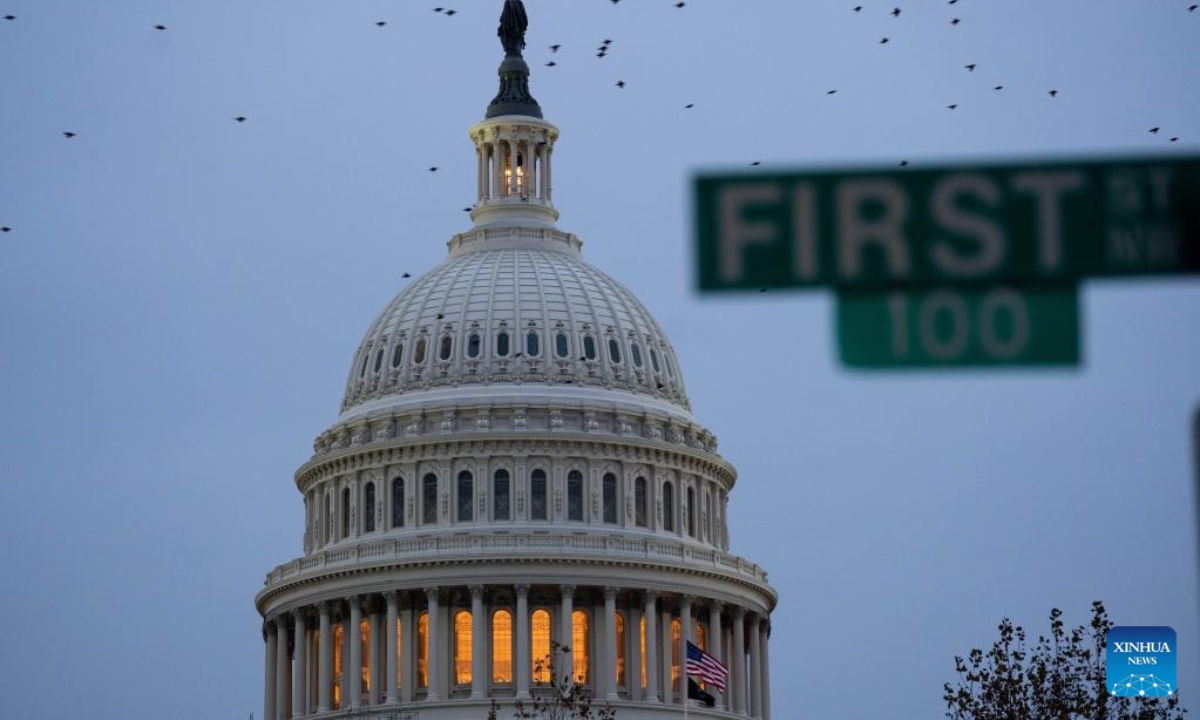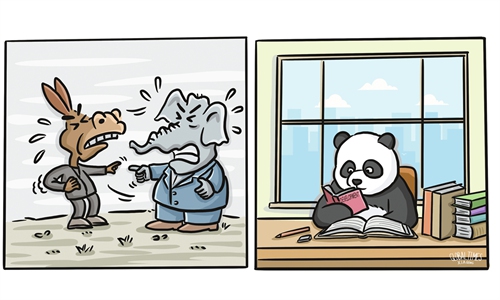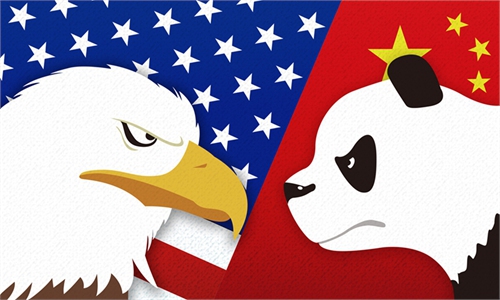
Photo taken on Dec 8, 2022 shows the U.S. Capitol building in Washington, DC, the United States. Photo:Xinhua
There are few absolutes in Washington these days. America's politicians will drone on and on about guns, abortion and a host of other issues, but Democrats know their voices will be directed at their supporters; likewise, Republicans will target their messages to their own base.
However, when it comes to China, politicians from both parties line up one after another to affirm their contention that China is dangerous and poses a real threat to the US and to the world. Dubious legislation follows.
That brings us to what some US politicians have called "China Week," an event characterized by a barrage of bills emanating from the House of Representatives that lawmakers insist will keep America safe from China's "nefarious" aims.
The zeal to penalize China includes resurrecting one of the most unwise policies from the recent past: the China Initiative, a misguided effort deemed necessary to target the unknown number of Chinese scholars at US institutions, whom politicians claimed were sharing their discoveries with China or who had withheld alleged previous connections with Chinese military or government agencies.
A bill resembling the China Initiative passed the House of Representatives late Wednesday (US time). Whatever happens in the coming days, we would be wise to remember that the original initiative had at least two corrosive elements.
First, it increased the number of anti-Asian and anti-Chinese acts throughout the US, and this animosity continues into 2024. A report released earlier this year found that 32 percent of Asian Americans reported a slur being used against them throughout 2023 and early 2024. 29 percent of Asian Americans stated that they have been verbally harassed or abused.
Second, the initiative instilled fear in scholars born in China and working at US colleges and universities. Quoting Inside Higher Ed, "half of Chinese scientists at US universities report concerns about being surveilled by the US government, fearing that a China-focused Department of Justice initiative to combat theft of trade secrets may be harming American science."
Even though the chances are small that any revised China Initiative will become law, there is every reason to believe that the exodus of Chinese scholars from the US back to China will continue. US institutions suffer from this brain drain, and Chinese scholars also suffer by being excluded from some of the most prestigious universities in the world.
Meanwhile, politicians also want to punish America's colleges and universities that engage in specific research with Chinese institutions. As a result, one US higher education institution - Georgia Tech - has chosen to end its partnership with Tianjin University.
Viewed another way, US politicians are determined to advance the idea that Chinese scholars cannot be trusted and any US institution that promotes international research with China should expect serious penalties.
You'd be hard-pressed to find an influential voice in Washington who can explain how such ideas are consistent with America's most basic values.
"China Week" certainly looks like a major public relations campaign. There is an old adage in the US that the majority of American voters do not start paying attention to politics until after Labor Day. Therefore, the timing of what is unfolding in Washington appears to be a convenient use of the calendar, especially considering that a presidential debate just took place on Tuesday evening (US time).
Public relations stunt or not, we must not forget something important. The Center for Strategic and International Studies recently concluded that more than 600 anti-China bills have been unveiled over the past two years. It pointed out that "the 118th Congress has introduced more laws and regulations mentioning China specifically than in previous sessions. Moreover, concern about China has become so central to policy discourse in the US that China increasingly serves as the motivation for even nominally non-China pieces of legislation."
The political discourse in the US when it comes to China lacks common sense, and the more mainstream media attention it gets, the more damage it does to public opinion across the country. Regardless of who wins the presidential election in November, there is no reason to expect a change in the rhetoric or its vicious tone.
The author is an associate professor at the Department of Communication and Organizational Leadership at Robert Morris University. opinion@globaltimes.com.cn



